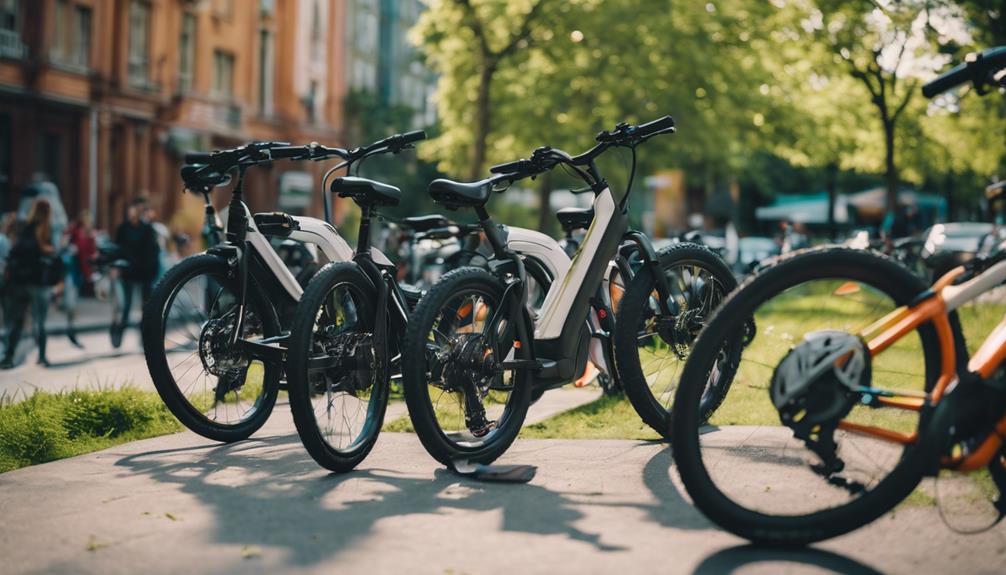As cities around the globe grapple with increasing traffic congestion, pollution, and the urgent need for sustainable transport solutions, electric cargo bikes have emerged as a transformative mode of transportation. Combining the functionality of traditional cargo bikes with the power of electric assistance, these innovative vehicles are changing the way goods are transported in urban environments. This article explores the benefits, challenges, and future prospects of electric cargo bikes, supported by relevant examples, statistics, and case studies.
What is an Electric Cargo Bike?
An electric cargo bike is a bicycle equipped with an electric motor to assist with pedaling, specifically designed for carrying heavy loads. Unlike standard bicycles, electric cargo bikes often feature a larger frame, reinforced tires, and ample storage space, including cargo boxes or racks, making them ideal for transporting goods, children, or even pets.
Benefits of Electric Cargo Bikes
Electric cargo bikes offer numerous advantages over traditional vehicles, especially in urban settings. Here are some of the key benefits:
- Environmental Impact: Electric cargo bikes produce zero emissions during operation, significantly reducing air pollution in cities. They contribute to lowering the carbon footprint of urban transport.
- Cost-Effectiveness: With lower operating costs compared to cars or vans—no fuel costs, minimal maintenance, and reduced parking fees—electric cargo bikes can save businesses and individuals substantial amounts over time.
- Traffic Congestion: These bikes can maneuver through traffic more easily than larger vehicles, often allowing for faster delivery times in congested urban areas.
- Health Benefits: Riding an electric cargo bike encourages physical activity, promoting a healthier lifestyle while still providing the option of electric assistance for longer distances or heavier loads.
- Versatility: Electric cargo bikes can be used for a variety of purposes, including deliveries, family transport, and even as mobile shops.
Case Studies: Cities Leading the Charge
Several cities around the world are pioneering the use of electric cargo bikes as a sustainable transport option. Here are a few notable examples:
Amsterdam, Netherlands
Amsterdam is renowned for its cycling culture, and the city has embraced electric cargo bikes as part of its sustainability initiatives. The municipality provides subsidies for businesses that adopt electric cargo bikes for deliveries, resulting in a significant reduction in delivery-related traffic. According to a report by the Amsterdam University of Applied Sciences, the number of freight bikes in the city increased by 40% from 2017 to 2019.
Berlin, Germany
Berlin has launched various pilot projects aimed at promoting electric cargo bikes for last-mile delivery services. The city’s initiative, “Fahrrad für alle” (Bikes for Everyone), encourages businesses to utilize these bikes. A study conducted by the Technical University of Berlin found that using electric cargo bikes for deliveries reduced delivery times by up to 30% compared to vans in certain districts.
Portland, Oregon, USA
Portland is another city making strides in electric cargo bike adoption. The city’s “Cargo Bike Collective” program helps families and small businesses acquire electric cargo bikes. According to a city report, participants in the program reported a 60% decrease in car trips after adopting cargo bikes, demonstrating their potential for reducing urban traffic.
Challenges Facing Electric Cargo Bikes
While the benefits of electric cargo bikes are substantial, there are also challenges that need to be addressed:
- Infrastructure: Many cities lack the necessary infrastructure, such as dedicated bike lanes and secure parking, to support the widespread adoption of electric cargo bikes.
- Cost of Purchase: The initial purchase price of electric cargo bikes can be a barrier for many individuals and businesses, despite the long-term savings they offer.
- Regulatory Issues: Regulations surrounding the use of electric bikes can vary significantly between regions, which can complicate their integration into existing transport systems.
- Battery Life and Maintenance: Concerns about battery life and the maintenance of electric components can deter potential users.
The Future of Electric Cargo Bikes
The future of electric cargo bikes looks promising as more cities recognize their potential to transform urban transport. Key trends that are likely to shape the future of electric cargo bikes include:
- Increased Investment: Governments and private investors are increasingly funding electric cargo bike initiatives, recognizing their role in sustainable urban mobility.
- Technological Advances: Innovations in battery technology and bike design are expected to make electric cargo bikes more efficient, affordable, and easier to maintain.
- Integration with Public Transport: As cities develop multimodal transport strategies, electric cargo bikes are likely to be integrated with public transit systems, providing seamless connectivity.
- Growing Popularity Among Businesses: More businesses are likely to adopt electric cargo bikes for deliveries, particularly in light of the rise of e-commerce and the demand for quick, efficient service.
Conclusion: A Sustainable Solution for Urban Transport
Electric cargo bikes represent a significant step towards sustainable urban transport. With their ability to reduce emissions, traffic congestion, and costs, they offer a viable alternative to traditional delivery methods. As cities around the world continue to invest in infrastructure and promote the use of electric cargo bikes, we can expect to see a shift in how goods and people are transported in urban areas. The examples from cities like Amsterdam, Berlin, and Portland illustrate the potential for electric cargo bikes to create a more sustainable, efficient, and healthier environment. The journey towards widespread adoption may have its challenges, but the benefits are clear, making electric cargo bikes an essential part of the future of urban transport.
